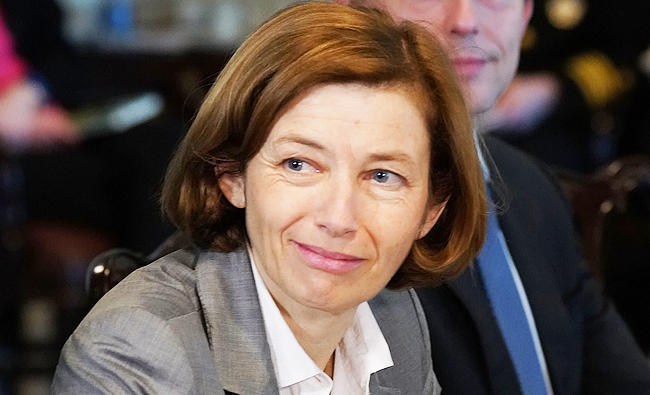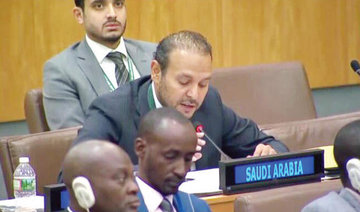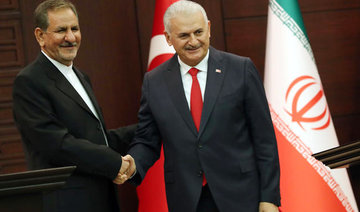WASHINGTON: France wants to take action to tackle Iran’s missile program and “destabilizing” behavior, but believes scrapping the 2015 nuclear deal would help hard-liners and be a step toward future war, France’s Defense Minister Florence Parly said on Friday.
“We need the JCPOA. Scrapping it would be a gift to Iran’s hard-liners, and a first step toward future wars,” Parly said in a speech at a Washington think tank, referring to the nuclear deal known as the Joint Comprehensive Plan of Action.
“But we should also be very serious about the destabilizing ballistic and regional activities. We are working on it.”
Parly spoke as Russia’s Foreign Minister Sergey Lavrov said the nuclear deal could be amended only as long as his country and other signatories agreed to proposed changes.
President Donald Trump last week threatened to pull the US out of the deal week unless US lawmakers amend the law that allows and spells out the terms of Washington’s participation in the international accord.
Trump alone cannot actually terminate the 2015 agreement, which lifted sanctions that had choked Iran’s economy in exchange for Tehran rolling back its nuclear program. But withdrawal by the US would render it virtually meaningless.
Speaking at a conference in Moscow, Lavrov said on Friday that any unilateral changes to the deal “could bury this agreement, which is vital for strategic stability and nuclear non-proliferation.”
Nuclear proliferation
Former US Secretary of State John Kerry said Trump risked driving Iran toward nuclear proliferation and worsening a standoff with North Korea if Washington ended a nuclear deal with Tehran.
Kerry, who negotiated the 2015 deal, was speaking in a private lecture delivered at Geneva’s Graduate Institute.
“If you want to negotiate with (North Korean leader) Kim Jong-un, and your goal is to avoid war and try to be able to have a diplomatic resolution, the worst thing you can do is first threaten to destroy his country in the United Nations,” Kerry said.
“And secondly, screw around with the deal that has already been made because the message is, don’t make a deal with the United States, they won’t keep their word,” he said.
The nuclear deal places Iran under tough restraints, including inspections, round-the-clock surveillance and tracking every ounce of uranium produced, Kerry said. “We would notice an uptick in their enrichment, like that,” he said, snapping his fingers.
“And nobody that I know of with common sense can understand what the virtue is in accelerating a confrontation with the possibility that they might decide they want to break out and make it (a nuclear bomb) now instead of 10 or 15 or 25 years from now.”
Kerry, a former senator who headed the US Senate Foreign Relations Committee, told Swiss media that Trump’s leaving the Iranian deal’s fate to Congress was “very dangerous” and opened the door to “party politics.”
Congress cannot unilaterally renegotiate a multilateral accord, the Geneva daily Le Temps quoted him as saying. “It is possible that Congress would make an unreasonable decision that would put Iran’s Supreme Leader Ayatollah Ali Khamenei in a very complicated political situation that could force him to retaliate. It’s a slippery slope.”
Khamenei said on Wednesday that Tehran would stick to its accord as long as the other signatories respected it, but would “shred” the deal if Washington pulled out, state TV reported.
If Iran violated the accord, UN sanctions would snap back into place, Kerry told the audience.
“Moreover, at that point in time folks, we have a year of break-up. We have all the time that we need in the world to be able to bomb their facilities into submission.”
Ending the deal could lead to Iran hiding fissile production facilities “deep in a mountain where we have no insight.”
“So the scenario that Trump opens up by saying ‘let’s get rid of the deal’ is actually proliferation, far more damaging and dangerous,” Kerry said.


























